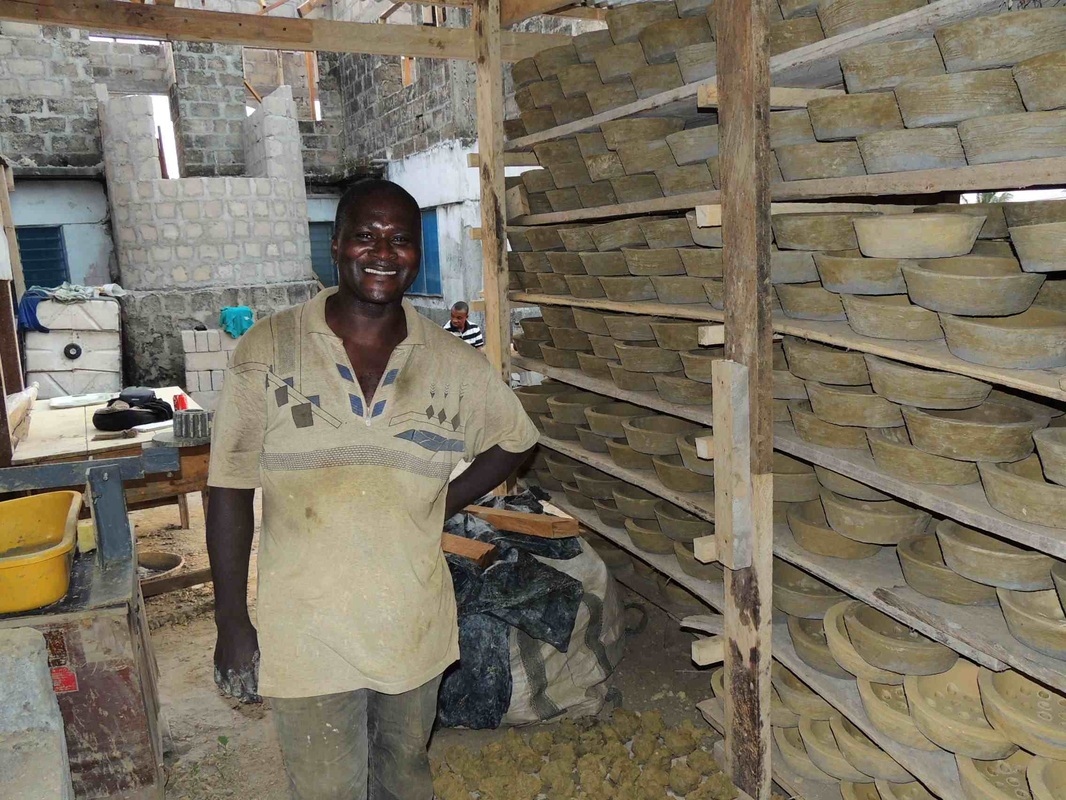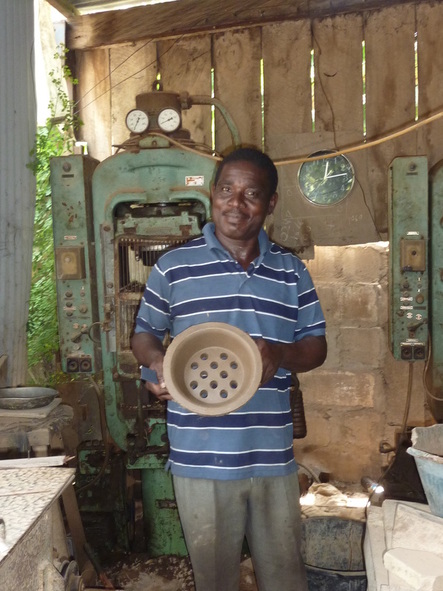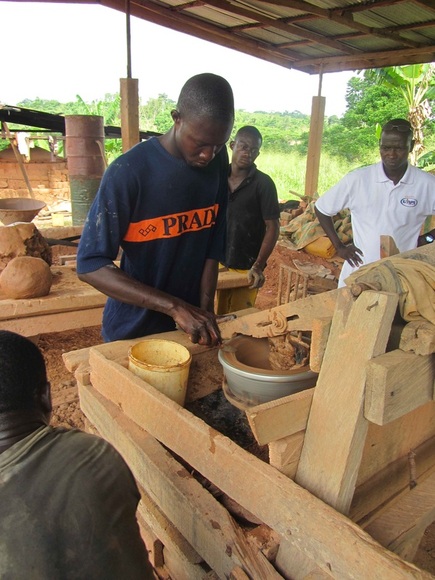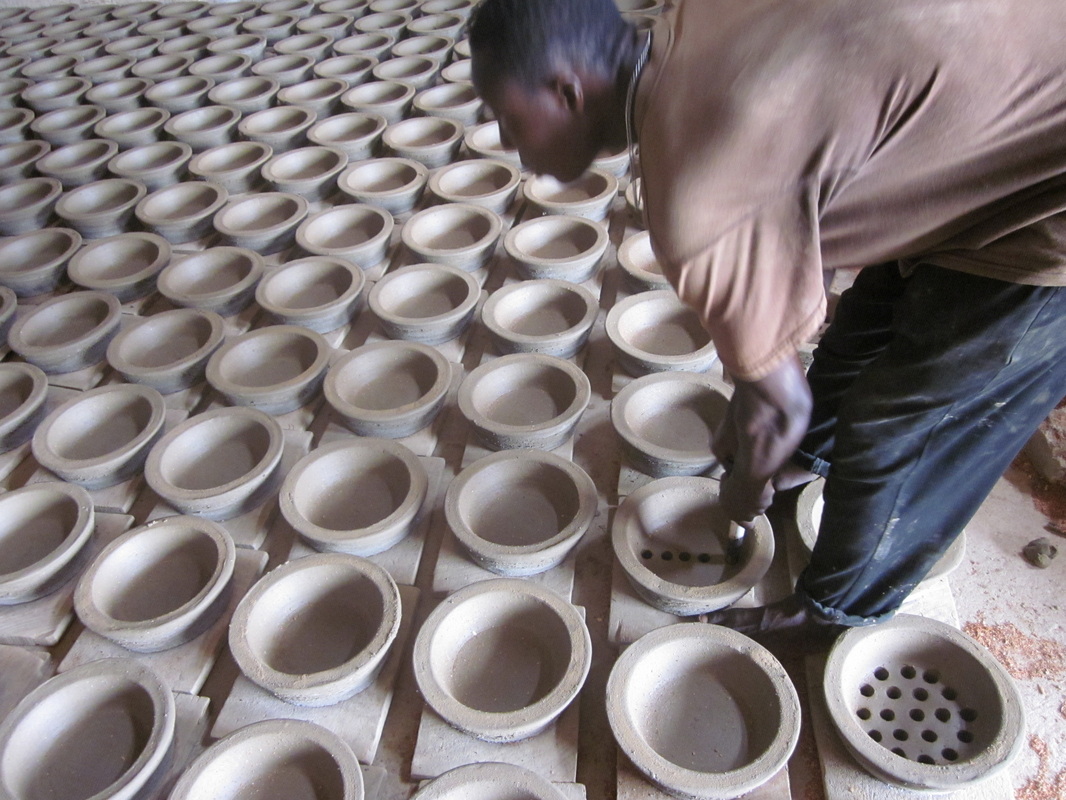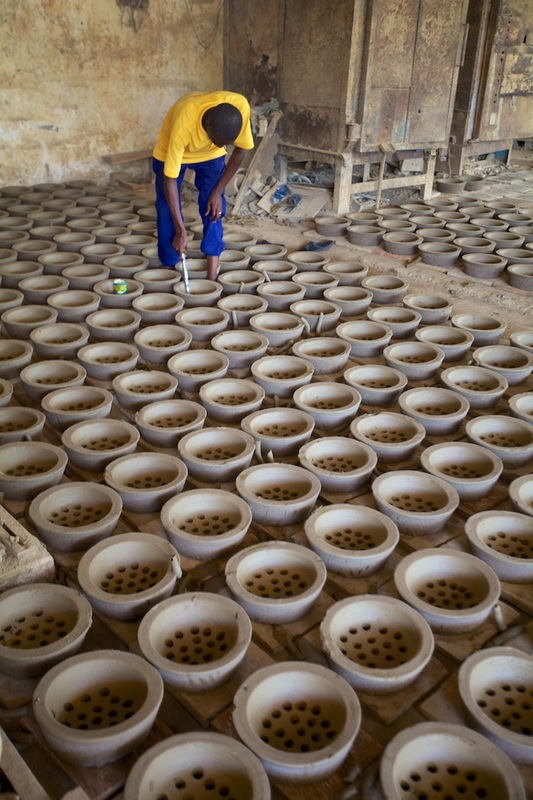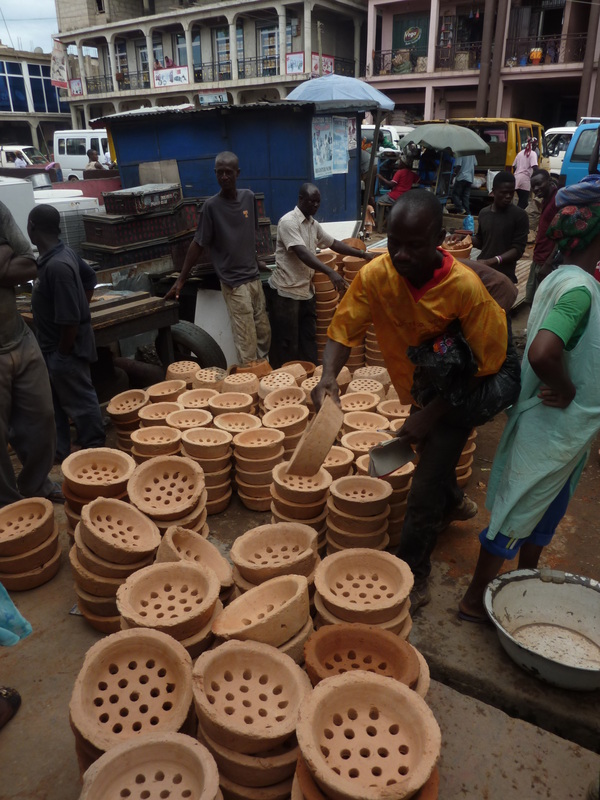Gyapa Enterprises has six certified ceramicists in Accra , Takoradi and Kumasi who produce all of the ceramic liners for the Gyapa fuel-efficient cookstove. All ceramic liners go through a stringent quality control test to ensure fuel efficency and heat retention and are durable enough to endure Ghanaian cooking needs.
Meet some of our ceramic artisans and see how they make Gyapa cookstove liners.
Meet some of our ceramic artisans and see how they make Gyapa cookstove liners.
